Investigating Science is the new kid on the science block and it had a bit of a rocky start. Although just about every science teacher understood it was not a replacement for senior science, that message didn’t seem to have been received so effectively outside of science staffrooms. I think that’s changing, but it’s a slow shift.
Here’s what candidatures and band achievement have looked like in the few years it’s run.
Investigating Science is one of the few subjects in the HSC where we can see, what I think, is likely genuine change in the achievement of the cohort.
From 2019 to 2025, there’s been an upward trend in achievement in the top two bands of achievement. In most subjects, when we see this, we see a corresponding drop in the value of those bands to contributions to ATARs. But that doesn’t seem to be the case in Investigating.
Here’s how Investigating Science has scaled since 2019.
Each dot represents an HSC score from 0-100. Each dot is coloured by Band. Red scores are Band 1s, yellows are Bands 2 and 3, blues are bands 4 and 5 and pink dots on the right are Band 6 scores. The left most pink dot is the first Band 6 score, so an HSC score of 90. How far across to the right a dot is shows what that HSC score was worth to a student’s ATAR. What has definitely been increasing, as we can see here, is the highest scaled score available to Investigating Science. The only way for this to come about is for higher proportions of higher achieving students across the state cohort to be studying Investigating in the first place.
Investigating, like all Science subjects, was judged pretty harshly in 2022, making band achievement more difficult to achieve than in other years, but that change in scaling, particularly for Band 6 scores, is disproportioinate to the change in Band 6 scores achieved by the cohort. When changes in band achievement are not inversely proportional to changes in scaling, I think it’s likely indicative of a change in the cohort. This makes sense for Investigating Science, as it’s not yet entrenched like most HSC subjects.
Here’s what achievement looked like in 2024, for all HSC scores above Band 1.
There are very few students achieving beyond an HSC score of 93 in Investigating Science. Just 0.8%. Unfortunately this does matter to students with the highest potential. Although, in Investigating Science, the highest contributions to ATARs available to students have increased right up to the point where there’s really no deficit for anyone, the proportion of students benefiting from that is lower than in other sciences.
It’s not a real equivalence, in fact, if I went by equivalences, Investigating would look even lower, but the proportions of students with HSC scores higher than 93 are:
Investigating - 0.8%
Earth - 1%
Biology - 1.3%
Chemistry - 3.8%
Physics - 3.8%
Here are just those top band scores, zoomed in a bit.
The difference between what a Band 6 score is worth to a student’s ATAR in Investigating Science and other sciences is pretty stark. That continues when we just look at Band 5 achievement as well.
It’s important to note that Investigating Science does not scale poorly. Not by any means. But, even though every Science subject in the HSC has the same descriptors of band achievement, how those descriptors are understood as standards is different from science to science. And that’s ok. That’s how the HSC was designed. Every subject determines academic achievement on to its own terms according to its own descriptors. How any subject interprets its descriptors is not dependent on or beholden to any other (except 2 unit English).
Here’s what band achievement meant to ATAR scores in 2024, by my estimates.
Here’s what scaling in Investigating Science looked like in 2024, compared to HSC scores.
The straight line is HSC scores. The blue dots off the green line are those HSC scores as ATAR contributions. Sometimes people talk about when subjects scale up and down. This shows what they mean by that. But it’s not a good way to think about the HSC. Where a blue dot is in relation to the straight line doesn’t represent positive or negative contributions to ATARs. It’s just that HSC scores are linear, but how they scale is not.
At low Band 4 and below, Investigating Science contributes very little to ATAR scores, representing just over 30% of the state cohort.
Here’s what all HSC scores meant as ATAR contributions, by my estimations, in 2024.
And here’s the same thing, but using ATAR contributions as a starting point rather than HSC scores. So the same as the chart above, but in reverse. This shows the lowest HSC scores required in 2024 to achieve different ATAR contributions.
Investigating Science - Coming Into Its Own (Slowly?)
Investigating Science is, I think, an example of a new idea trying to force itself into an entrenched system. It is succeeding, I think, but there is a way to go before it’s there and part of that system as it’s intended.
Investigating is, from what I can tell, a great subject. I know a number of science teachers who tell me it’s their favourite senior science subject to teach. There are some limitations for very high achieving students, but those limitations are diminishing each year as its intended cohort slowly takes over its initial cohort.
The scientific method matters at least as much as it ever has. I think the ability to learn is one of the greatest skills we can give a person as they enter the adult world. Of increasing importance in our world, and coupled with skills in learning, is the ability and willingness to change one’s mind when presented with compelling reason to do so. In his book ‘Think Again’, Adam Grant proposes that the more we all think like scientists, the better equipped we are to consider and change in reasonable ways. I think I agree.



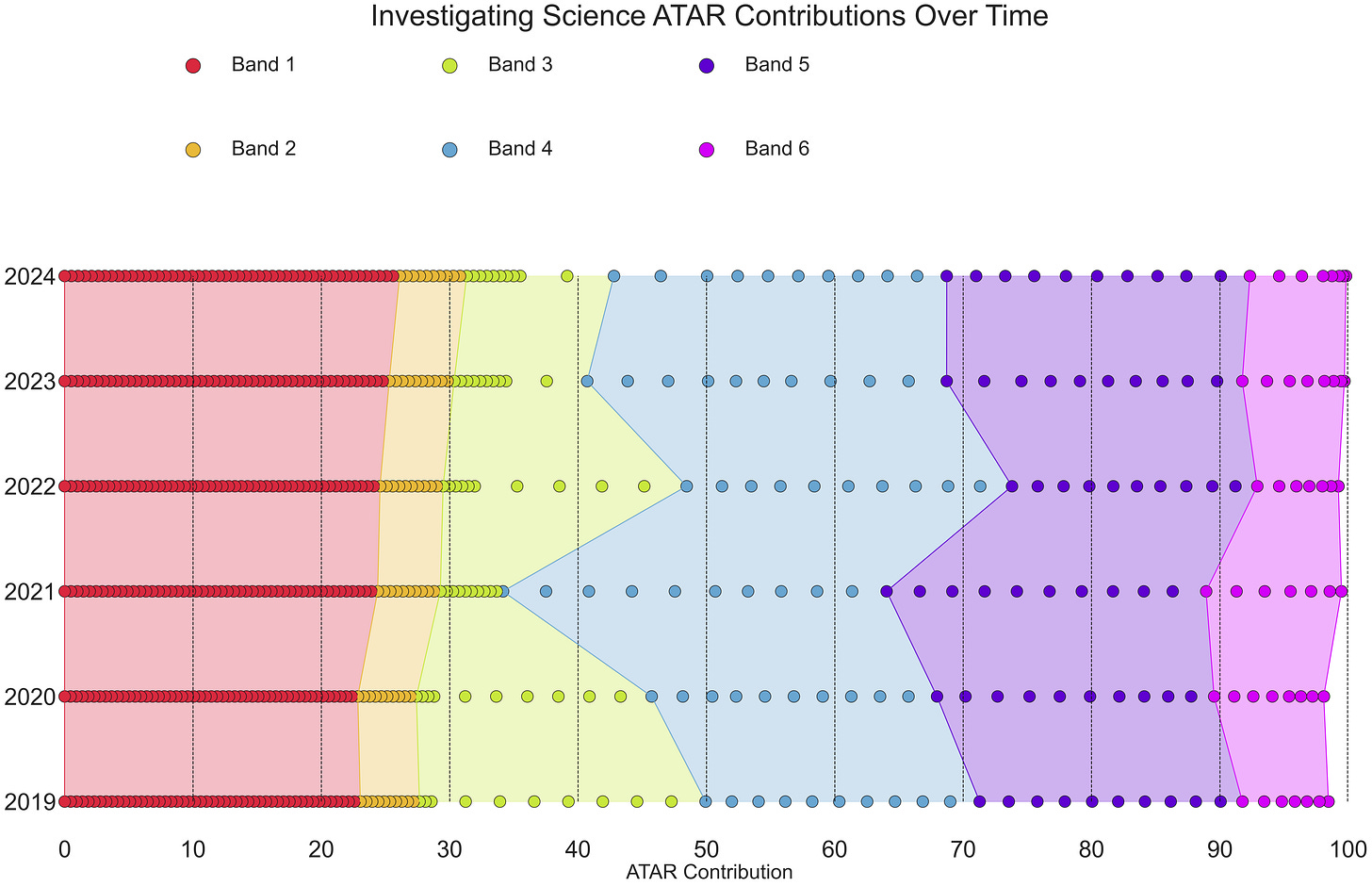
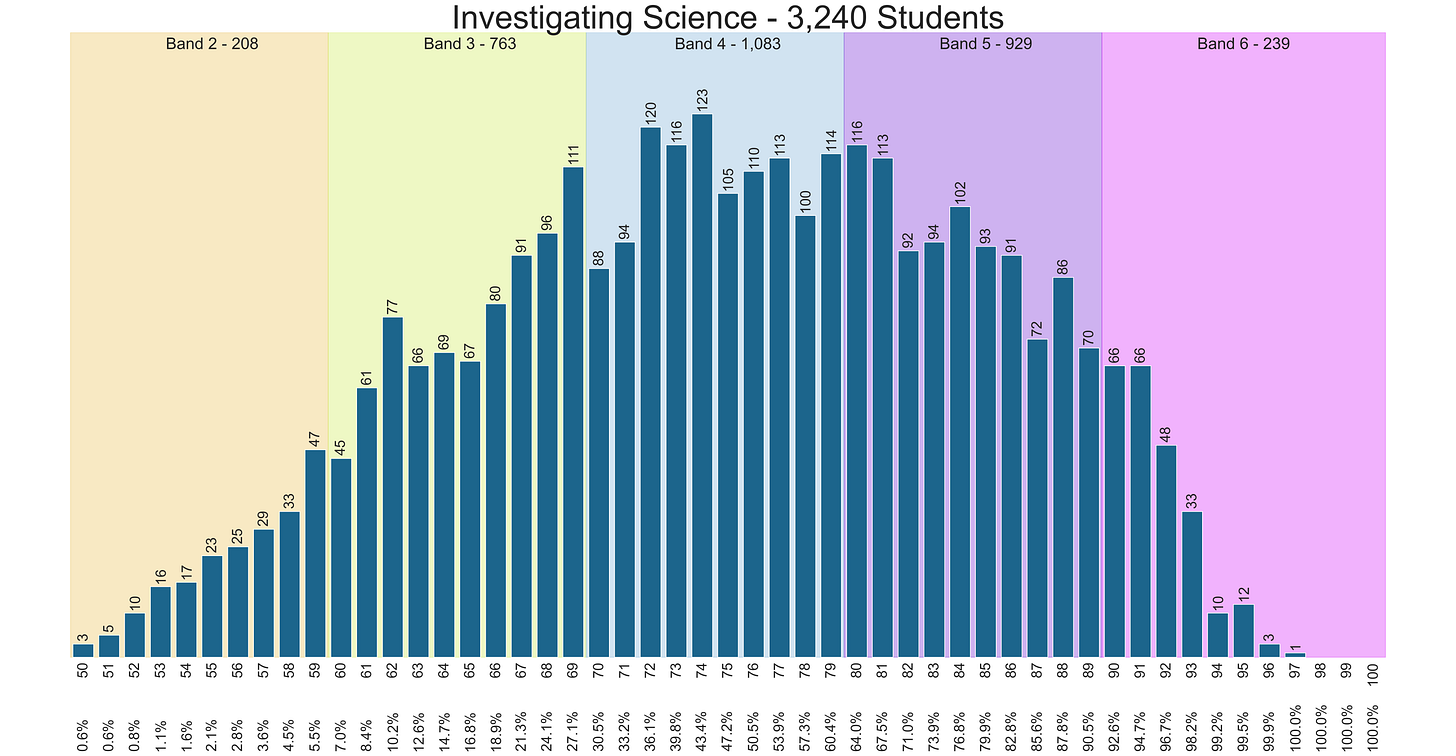
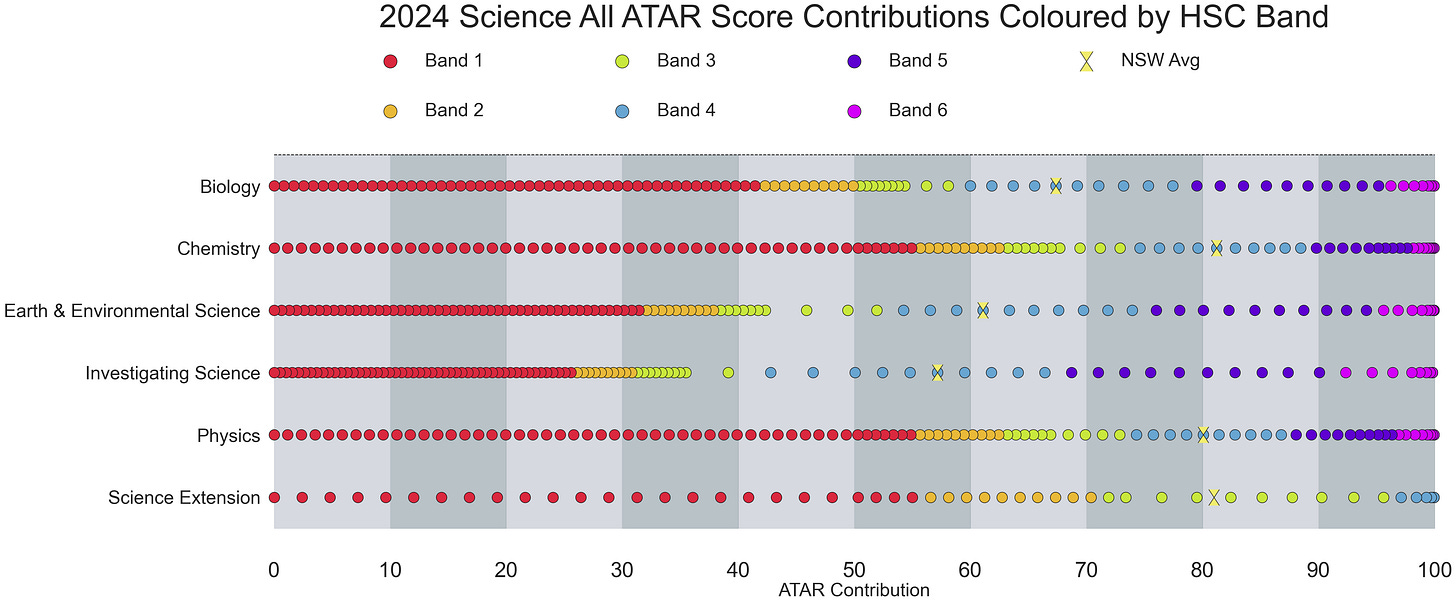
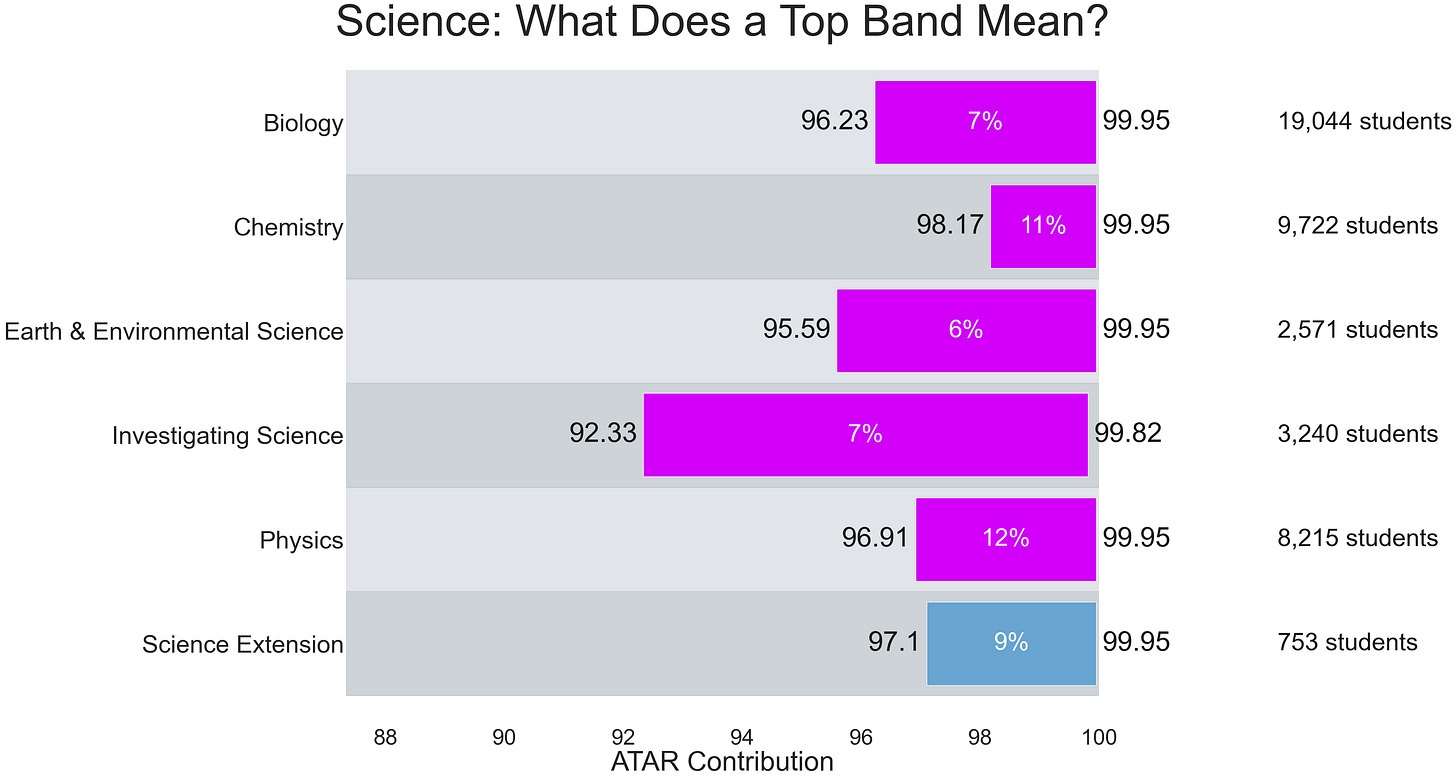
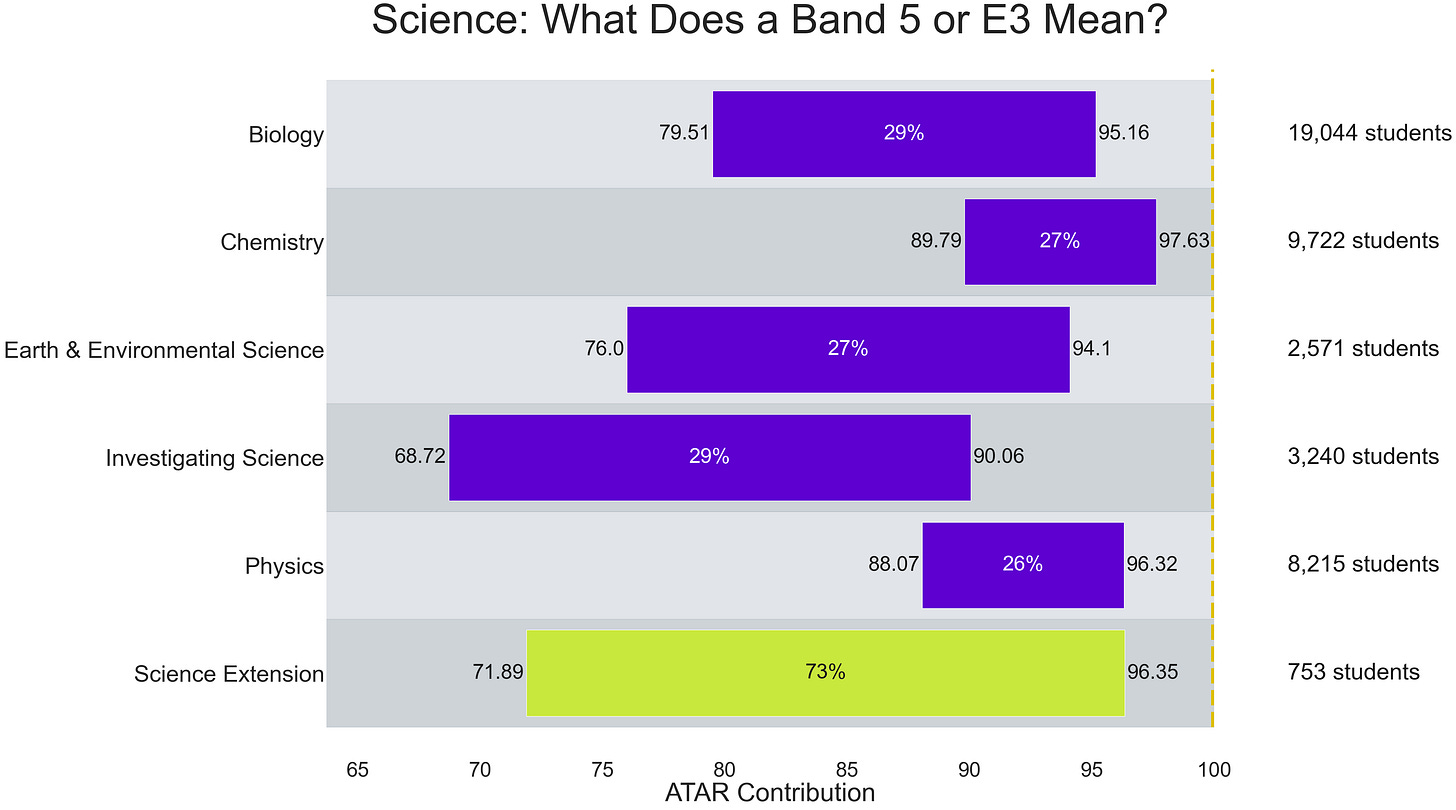
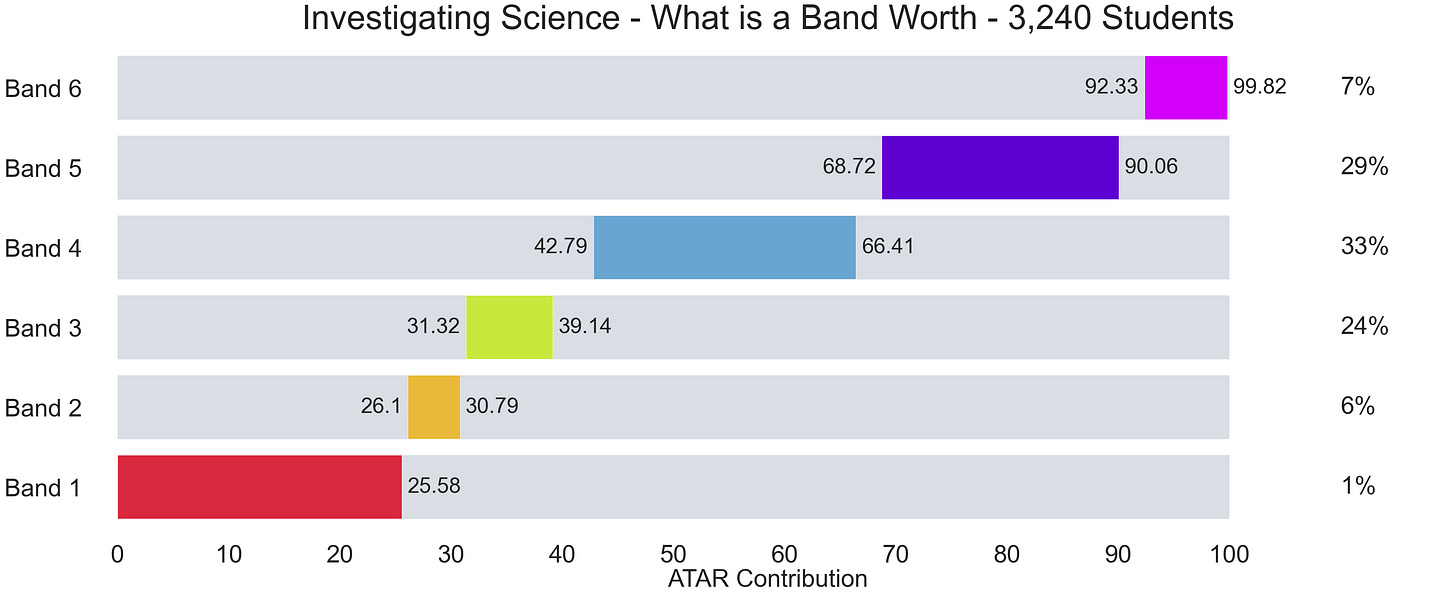
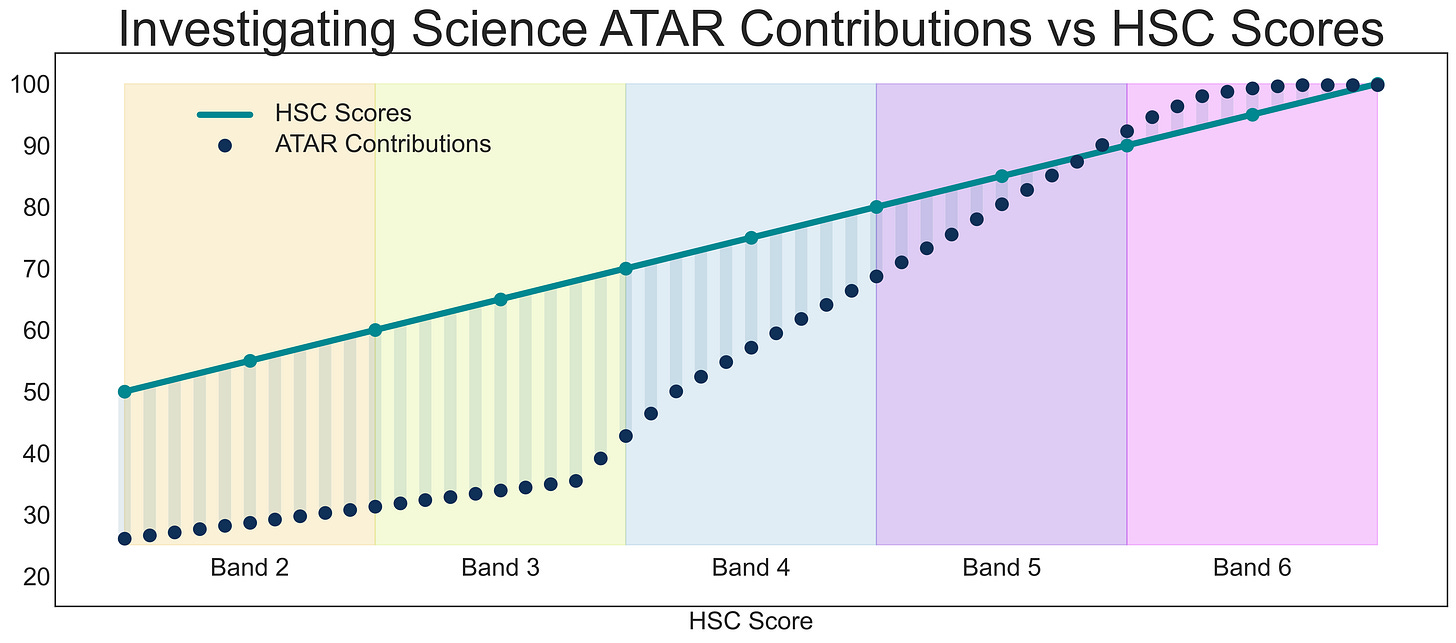
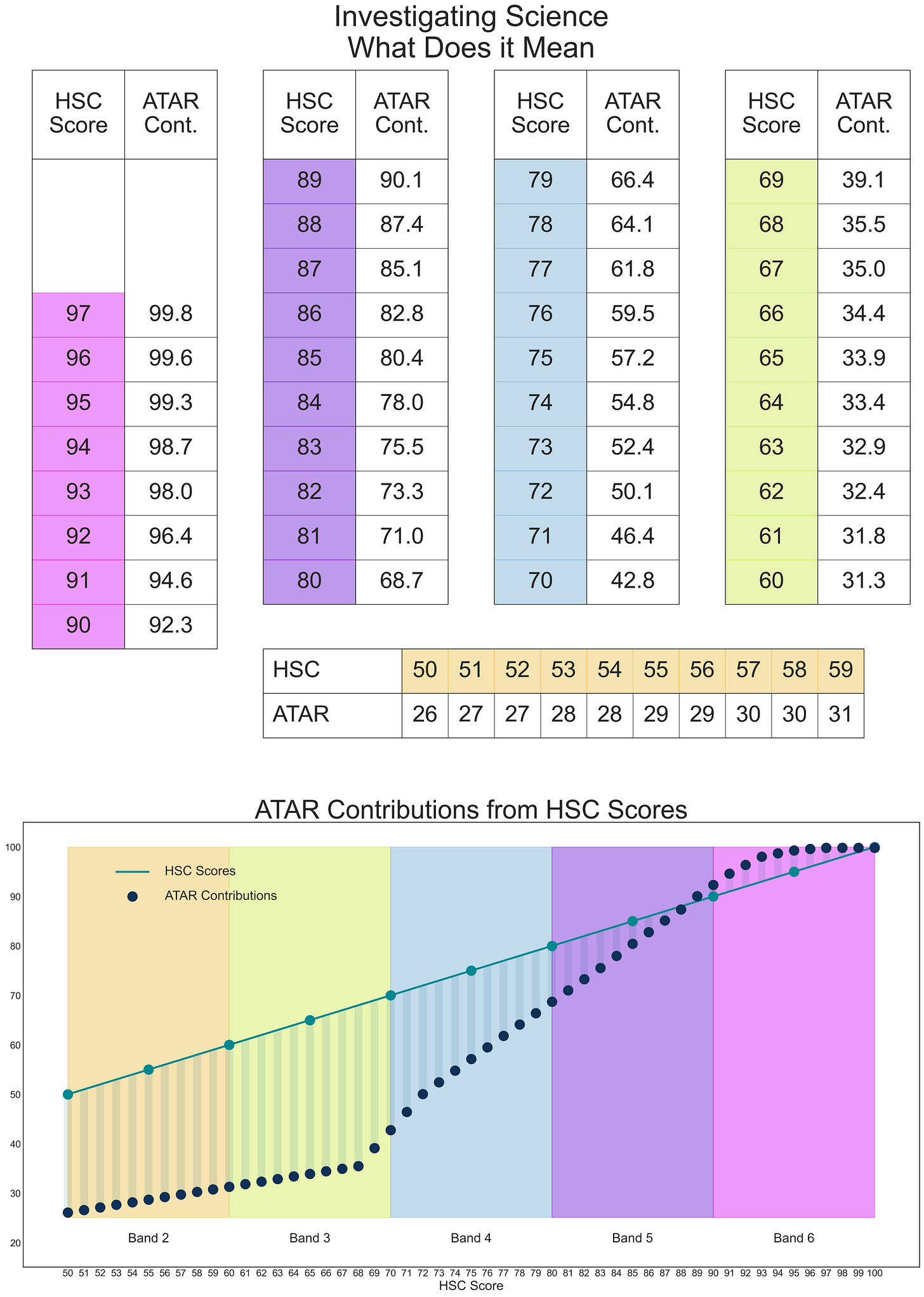
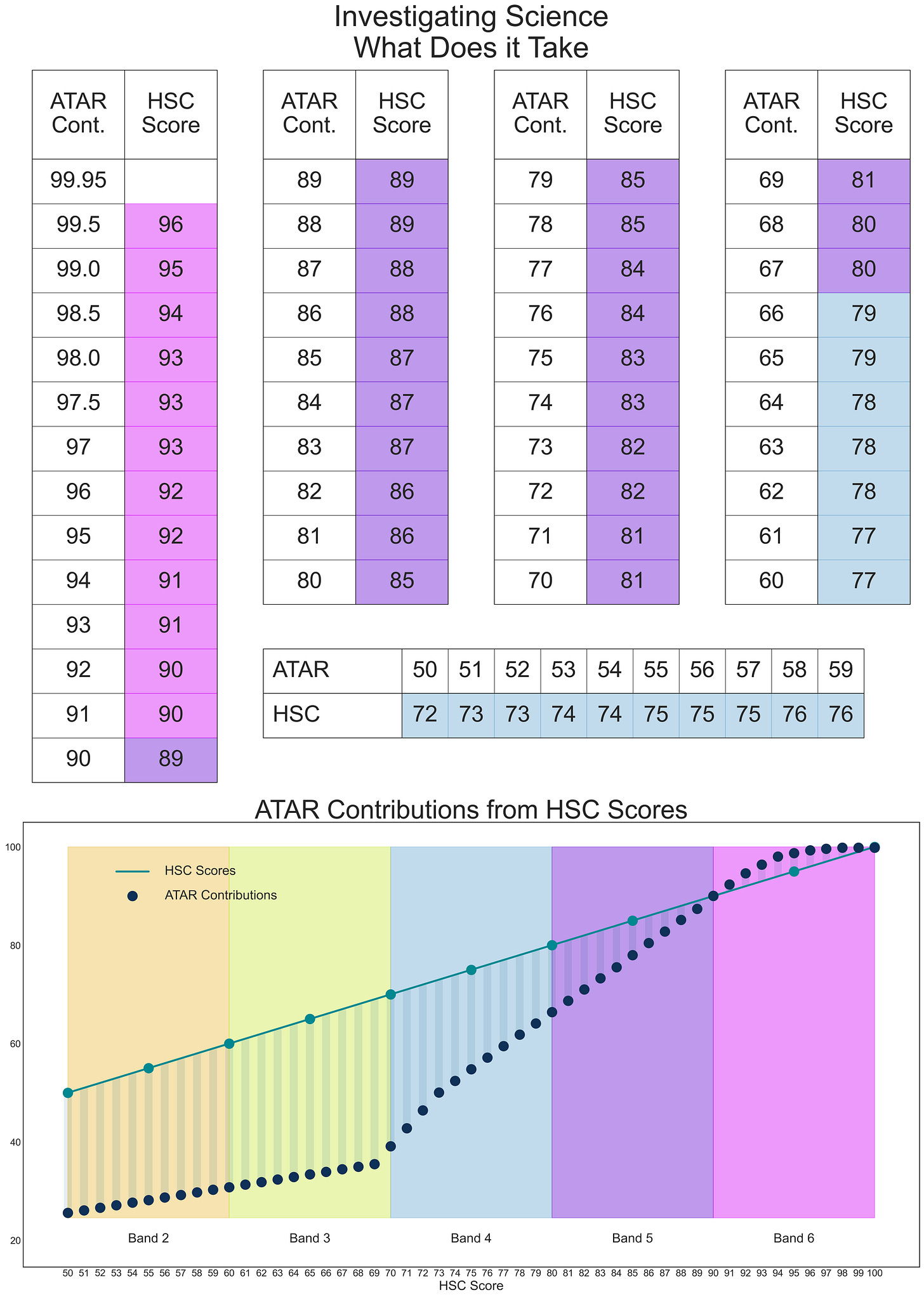
Graham, this is a great evaluation of the course. I would like to know about the idea of 'ATAR contribution'. Are suggesting that a student 96 in Investigating Science is likely to be a 99.5 ATAR range?